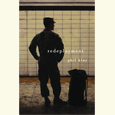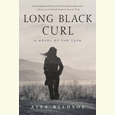Not a Partridge, or a Ruby
In her debut poetry collection, Caroline Randall Williams considers the identity of Shakespeare’s Dark Lady
It is no stretch to say that Caroline Randall Williams is a rising literary star. Her 2012 middle-grade novel, The Diary of B.B. Bright, Possible Princess (co-authored with her mother, Alice Randall), was nominated for an NAACP Image Award for Outstanding Literary Work. Earlier this year, the mother-daughter team also published a cookbook, Soul Food Love, that’s a modern and healthier take on traditional African-American foods. And Southern Living recently named Williams one of “50 People Who Are Changing the South in 2015.”
 But this writer’s influence extends beyond her hometown of Nashville and current residence of Oxford, Mississippi. Williams’s first solo outing, a genre-challenging poetry collection called Lucy Negro, Redux, is the kind of book that can send shockwaves through the literary community. For starters, the poems gamble in that riskiest of risky literary arenas, Shakespeare’s personal life. And they do so with such grit, music, and honesty that readers will find themselves rooting for the poet’s theory—that Shakespeare once had a black lover and immortalized her in verse—to be true.
But this writer’s influence extends beyond her hometown of Nashville and current residence of Oxford, Mississippi. Williams’s first solo outing, a genre-challenging poetry collection called Lucy Negro, Redux, is the kind of book that can send shockwaves through the literary community. For starters, the poems gamble in that riskiest of risky literary arenas, Shakespeare’s personal life. And they do so with such grit, music, and honesty that readers will find themselves rooting for the poet’s theory—that Shakespeare once had a black lover and immortalized her in verse—to be true.
The bard addresses his Dark Lady in sonnets 127-154, and scholars have long sought to identify her. Lucy Negro, Redux explores the possibility that her real-life counterpart was Black Luce, a London madam who escaped arrest but not notoriety. The germ of this idea began with Duncan Salkeld, a professor of Shakespeare and Renaissance Literature at the University of Chichester, who suggested Luce as the unnamed beloved in a 2012 article for the academic journal Signatures. His speculation received considerably more media attention than a peer-reviewed article on Elizabethan poetry typically generates.
Part of this collection of poems is not a poem at all but an essay that recounts Williams’s adventures with Salkeld as they sought evidence for what might seem at first like a fantastical argument. The story of their investigations is as entertaining as A.S. Byatt’s novel Possession, even if Williams ultimately found the tantalizing clues they uncovered—missing prison records and mutual acquaintances—unconvincing. She returned from England intent on finding convincing textual evidence instead, using Shakespeare’s actual writing as proof he had a black lover. Referring to a particular play on words in Comedy of Errors, Williams writes, “When you read Shakespeare widely, puns like this no longer seem like much of a stretch. And when you want something as badly as I want Black Luce to be the Dark Lady that Shakespeare loved, and loathed himself for loving, that little stretch becomes a welcome bridge.”
This urgent scholarly search alone would have made a fine book, but Lucy Negro, Redux goes well beyond its clever context. The poems are the heart of the book, beating with ferocious persistence. They give Lucy a life, imagining her as not just a famous writer’s mistress but as a force in her own right. In a dramatic monologue titled “Lucy’s Exiat Sayeth That,” Lucy describes herself:
I am not a partridge, or a ruby. I am a potato, a beetroot. Not a precious bird or jewel, but a dirt-dug tube. Rustle me, rub me all over, and I will muddle your interiors with flecks of brown earth. You will sigh at your soiled hands and then you will put them in your pockets to pay for it.
This is Lucy at her most commanding, but her defiance shines throughout the text. She towers over the mystery of the Dark Lady, rendering it ultimately secondary to the experience Williams imagines for her protagonist.
Perhaps most impressive is Williams’s series of sonnets, eighteen poems that use Shakespearean lines as jumping-off points. Unsurprisingly, given the nature of this project, they defy traditional expectations, using contemporary vernacular and rhythms to explore racism, sexism, violence, desire, despair, and other themes as relevant today as they were in the 1500s and 1600s. A few of the poems juxtapose Shakespeare’s own lines with Williams’s, and the result is both jarring and successful:
For I have sworn thee fair and thought thee bright
this the sin
we sweat our skins for—
Who art as black as hell, as dark as night.
While the premise of Lucy Negro, Redux might be academic, the collection couldn’t be further from the kind of antique manuscripts that may only be touched with gloves. These poems are tangible, very much of our own turbulent world. As the first poem, “BlackLucyNegro I,” explains, “she’s become an Other / way to talk about skin.” Williams pulls Lucy’s story into this world, examining both historical and contemporary problems of racism. This is a vital book, at once capable of searing insight and complex emotion. The poems speak to our time while giving voice to a ghost.

Erica Wright is the author of a new crime novel, The Red Chameleon, as well as two poetry collections. Now a senior editor at Guernica, she grew up in Wartrace, Tennessee, and received her M.F.A. from Columbia University.


